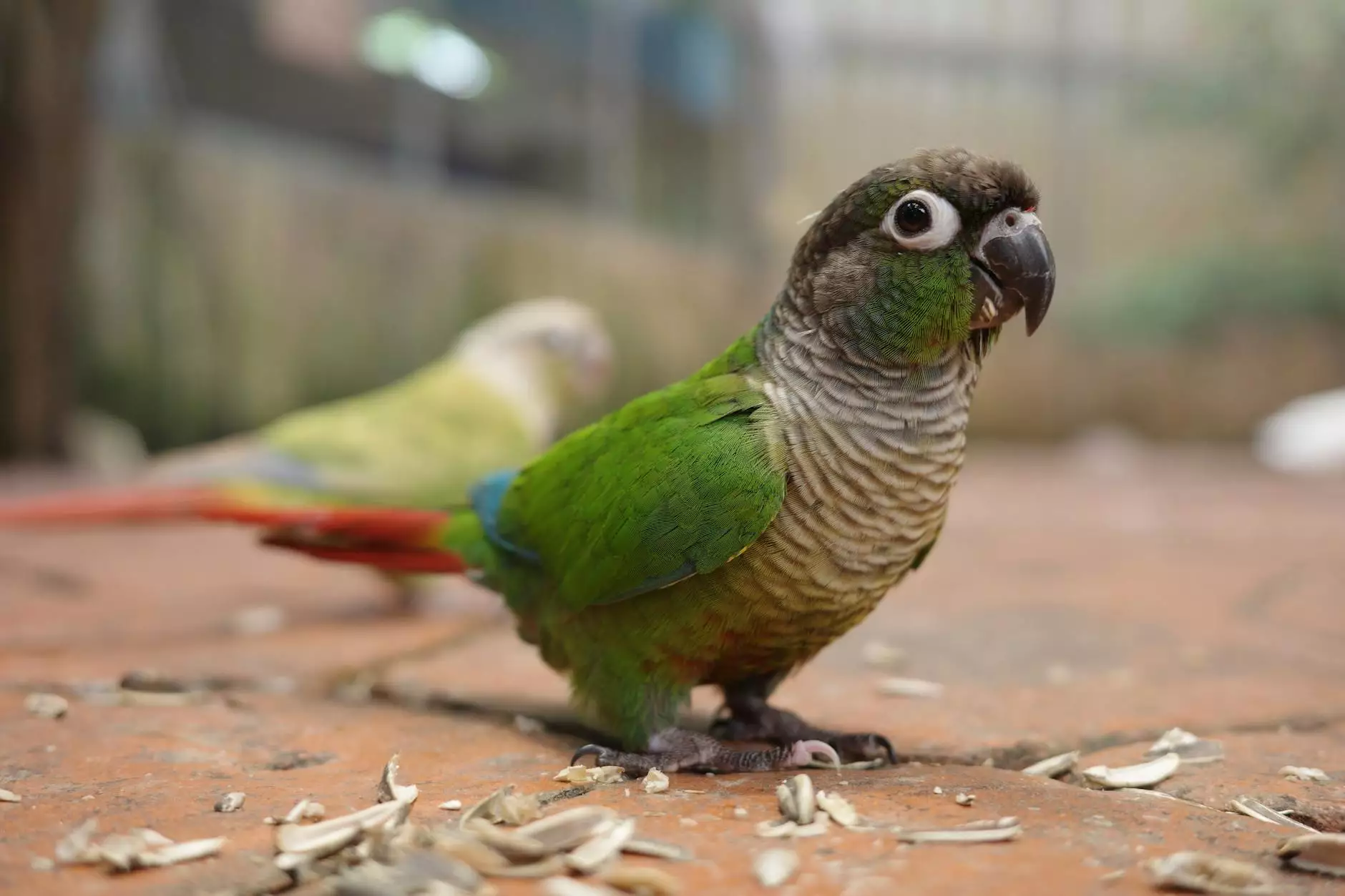The Ultimate Guide to Bird Conure: Your Perfect Pet

Finding the right bird conure as a pet can open up a whole new world of joy, companionship, and love. These vibrant birds, known for their affectionate nature and playful personalities, make excellent pets for families and individuals alike. In this comprehensive guide, we’ll explore everything you need to know about bird conures, from their characteristics to care tips, and how to find reputable breeders.
What is a Bird Conure?
A bird conure is a small to medium-sized parrot that belongs to the family Psittacidae. They are native to Central and South America, and their charming nature and striking colors have made them popular companions worldwide. There are several species of conures, including:
- Sun Conure - Known for their brilliant yellow and orange feathers.
- Green-cheeked Conure - A smaller variety, famous for their playful demeanor.
- Cinnamon Conure - A stunning variant with a beautiful cinnamon hue.
- Blue-crowned Conure - Recognizable by their distinctive blue crowns and green bodies.
Personality and Temperament of Conures
One of the most appealing aspects of bird conures is their engaging personality. These birds are known to form strong bonds with their owners and often seek attention and interaction. Common traits include:
- Affectionate - They thrive on human interaction and can be quite cuddly.
- Playful - Conures love to play and need plenty of toys and stimulation.
- Vocal - While they can be noisy, their sounds are often endearing and can include whistling and mimicking.
- Curious - They enjoy exploring their environment and require a safe space to satisfy their curiosity.
Caring for Your Bird Conure
Caring for a bird conure requires commitment and understanding of their needs. Here’s a detailed breakdown of how to provide the best care for your feathered friend:
Diet
A balanced diet is essential for the health of your bird conure. Their diet should consist of:
- Pellets - High-quality pellets designed for parrots are a staple.
- Fresh Fruits - Treat them to slices of apples, bananas, and berries.
- Vegetables - Leafy greens like spinach, kale, and carrots are crucial.
- Nuts and Seeds - Should be given in moderation as treats.
Housing
Your conure needs a spacious cage that allows for movement and play. Here are some housing tips:
- Size - The cage should be at least 24x24x36 inches for adequate space.
- Bar Spacing - Ensure bars are no wider than ½ inch to prevent escapes.
- Perches - Provide a variety of perch sizes and materials to promote foot health.
- Toys - Engage them with a range of toys to keep their minds active.
Socialization
Socialization is vital for a happy bird conure. Spend time interacting with your bird daily. Here are ways to enhance socialization:
- Handling - Gently handle them to build trust.
- Playtime - Allow them out of the cage in a safe environment to explore.
- Training - Use positive reinforcement to teach them tricks and commands.
Health Considerations
To ensure your bird conure stays healthy, regular veterinary check-ups are essential. Watch for signs of illness, which may include:
- Changes in Appetite - Sudden weight loss or changes in eating habits.
- Behavior Changes - Lethargy or changes in vocalization.
- Feather Condition - Ruffled feathers or excessive plucking can indicate problems.
Finding the Right Breeder
When looking to add a bird conure to your family, it is crucial to find a reputable breeder. Here are some tips for finding a quality source:
- Research - Look for breeders with positive reviews and a commitment to ethical breeding practices.
- Visit - If possible, visit the breeding facility to see the conditions and the care given to the birds.
- Ask Questions - Inquire about the bird’s lineage, health history, and socialization practices.
- Check Certifications - Ensure they have necessary licenses and adhere to best practices.
Conclusion
Owning a bird conure can be a rewarding experience filled with love and companionship. By understanding their needs, providing proper care, and creating a nurturing environment, you can ensure a long, happy life for your feathered friend. Whether you're looking for an affectionate family pet or a playful companion, conures will surely bring joy to your life.
For those interested in exploring the world of birds and finding the perfect bird conure, visit Rare Exotic Birds. We offer a variety of conures and can guide you in choosing your ideal pet, along with providing comprehensive support and advice for caring for your new companion.
FAQs about Bird Conures
Are Bird Conures Noisy?
Like many parrots, bird conures can be vocal, especially when excited. However, their chirps and noises can be charming and are part of their natural character.
Can Bird Conures be Litter Trained?
Yes, with patience and proper training, many conures can learn to go in designated areas, similar to litter training for cats.
Do Bird Conures Require a Lot of Attention?
Bird conures are social creatures and thrive on interaction. Daily engagement with their owners is vital for their mental and emotional health.
How Long Do Bird Conures Live?
With proper care, a bird conure can live between 20 to 30 years, making them a long-term commitment for any pet owner.
Resources for Bird Conure Owners
To further assist you in your journey with your bird conure, consider these valuable resources:
- American Veterinary Medical Association - Offers resources on bird health and care.
- BirdTricks - Provides training and behavioral guidance for parrots.
- The Parrot Bill - A website dedicated to bird care articles and community support.









